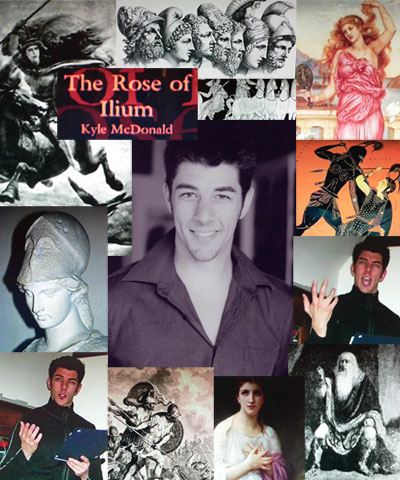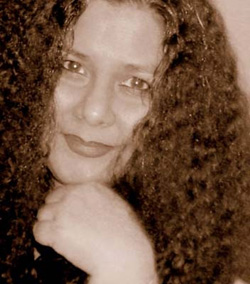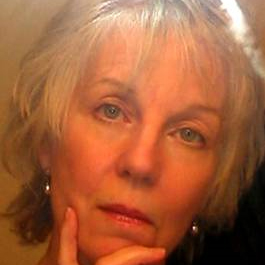War Poetry Contest 2007
Congratulations to the winners of our 2007 poetry contest on the theme of war!
Honorable Mention $100
- Lollie Butler, The Comfort Women
- Susan Deer Cloud, Killing Fields, Ice Storm, Letters from the Dead
- Corrinne Clegg Hales, Homefront: A Legacy
- Joseph Hart, Ajax Looks at the Stars
- Mark Hart, Pissing Under Pressure
- David Lloyd, Sestina: After the Crucifixion
- Robert Hill Long, Reveille and Taps
- Pan Morigan, Napalm
- Noel Paladin Tripp, Song for the Twentieth Maine
- Ian Schwartz, The Dust of Paradise
- Patricia Smith, Eyewitness News, Resolutely Toward the End, Almost
- Brenda Tate, Leaving the Lee Shore
Finalists
- John-Noel Attard, Triptych with Bridge
- Patricia Barone, Amazing Grace: A Hymn at the Home
- Peter Neil Carroll, War Time
- Chella Courington, Lynette’s War
- Kate Duva, Wings of a Boy
- Starkey Flythe, J-P
- Simon Guerrero, The Unknown Soldier
- Paul Hamill, A Quiet Evening by Fort Johnson
- Adrie Kusserow, War Metaphysics for a Sudanese Girl, Milk, Mud
- Tim Mayo, The Counterfeit Seal
- Charlotte Muse, The Torturer Describes His Job
- Kevin C. Peters, A marking, for each and all
- Martin Steele, Can We Believe Them?
- Burlee Vang, The Dead I Know, Lines for the Fleeing Widow and Her Children
Thanks to everyone who entered our sixth annual War Poetry Contest. This year we received 840 entries of 1-3 poems each. Formal poetry dominated the winners' circle for the first time, with ambitious epics that took creative risks with traditional techniques. War is tragic, wasteful of life, giving birth to atrocities from which writer and reader look away in horror. Yet the extremity of war can also call forth something noble, even starkly beautiful, in human beings pushed past the limits of normal existence. Our winners and finalists captured the multifaceted nature of warfare in memorable, unique stories.
I was immensely pleased to find such skilled formal poets among this year's entrants. The winning authors did not simply imitate outworn romantic styles, but engaged with the classical tradition on a sophisticated level and made it their own. Not content with technical virtuosity for its own sake, they carefully chose (or invented) forms that fit the tone and subject matter of their poems. Musicality is not only the concern of formalists, however. Whether formal or free verse, the winning poems were chosen for their beautiful language and authoritative voice.
Fresh perspectives on well-known events are essential for a poem to advance in the judging. One way to do this is by choosing an unusual narrator, someone with an interesting back-story in her own right, who stands off-center to the conflict and therefore sees things that the conventional wisdom misses. Examples include the child-protagonists in Aliene Pylant's "Girl in the Fire" and Pan Morigan's "Napalm", the dead soldier in Starkey Flythe's "J-P", and the wife of the foreign aid worker in Adrie Kusserow's trio of poems. Kusserow, Patricia Smith, Corrinne Clegg Hales and Chella Courington were among those who explored the intersection of class, race, and violence in incisive and discomforting ways.
Many new names appear in the winners' list this year, another sign that our contest is fulfilling its mission of discovering the best new thinking and writing about warfare. We also welcome back 2004 first-prize winner Robert Hill Long with his second honorable mention, along with past finalists Martin Steele and Brenda Tate.
The Winners
My first thought upon reading Kyle McDonald's astounding epic "The Rose of Ilium" was that it was impossible for a modern author to have written such a fluent, erudite and dramatic poem in this style—a dozen pages of iambic pentameter couplets worthy of 18th-century luminary Alexander Pope. My second thought was to Google the definitions of "reboant" and "orgulous" because McDonald's vocabulary is as wide-ranging as his imagination. Modeled on Pope's adaptation of the Iliad, "The Rose of Ilium" portrays a fateful battle between the Greek hero Achilles and the Amazon queen Penthesilea, who is fighting for the Trojans. McDonald captures the heroic grandeur of equally matched warriors who lament yet succumb to the fate that made them enemies instead of lovers. This tragedy makes the poem intensely personal and moving, notwithstanding the epic scope of the storyline.
Julian Damanas' "Gasoline" similarly masters challenges that other poets rarely even attempt. Imagine the peak oil crisis as an apocalyptic allegory, narrated in a sinister, exotic, prophetic voice that reminded me of Coleridge's "Kubla Khan" as well as T.S. Eliot's multilingual chorus of voices and genres in "The Waste Land". Damanas evokes the ecstatic frenzy of great powers moving inexorably toward mutual obliteration.
Aliene Pylant's "Girl in the Fire" begins on a more intimate scale with a young girl watching her father build a bonfire, but this small destructive act opens up a chasm that only she can see. In it is contained the whole human potential for violence, which her parents' well-meant but shallow spiritual reassurances cannot contain.
Many thanks to all our entrants, who probed terrible depths to bring back wisdom, compassion and honesty. May these poems remain in our memory and inspire us.
Contest Judge

Jendi Reiter
Jendi Reiter is vice president of Winning Writers, editor of The Best Free Literary Contests, and oversees the Winning Writers literary contests. Jendi is the author of the novel Origin Story (Saddle Road Press, 2024), the short story collection An Incomplete List of My Wishes (Sunshot Press, 2018), the novel Two Natures (Saddle Road Press, 2016), the poetry collections Introvert Pervert (The Word Works, 2026), Made Man (Little Red Tree Publishing, 2022), Bullies in Love (Little Red Tree Publishing, 2015), and A Talent for Sadness (Turning Point Books, 2003), and the award-winning poetry chapbooks Swallow (Amsterdam Press, 2009) and Barbie at 50 (Cervena Barva Press, 2010). Awards include two Massachusetts Cultural Council Artists' Grants for Poetry, the 2016 New Letters Prize for Fiction, the 2016 Rainbow Award for Best Gay Contemporary Fiction, the 2015 Wag's Revue Poetry Prize, the 2013 Little Red Tree International Poetry Prize, the 2012 Betsy Colquitt Award for Poetry from Descant magazine, the 2011 James Knudsen Editor's Prize in Fiction from Bayou Magazine, the 2011 OSA Enizagam Award for Fiction, the 2010 Anderbo Poetry Prize, and second prize in the 2010 Iowa Review Awards for Fiction. Jendi's work has appeared in Poetry, The New Criterion, Mudfish, Passages North, Cutthroat, Best American Poetry 1990, and many other publications. See their interview in RoundPier.










